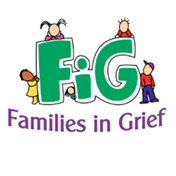|
Dear North Tawton Friends and Families, It’s been another busy and exciting term of learning at North Tawton! The year is certainly rushing by! Healthy Snacks We are promoting healthy choices at school. A reminder that children are welcome to bring a snack for morning break, this should be a healthy snack such as a breakfast bar or fruit, not chocolate or crisps. Bottles should contain water only, not juice or fizzy drinks. If you child has specific dietary requirements, please discuss this with your class teachers. Thank you. Nutritional Advice Are your children fussy eaters? Are you not sure about appropriate portion sizes? Here is some excellent advice and guidance we have had recommended to share with you. Eating well early years — First Steps Nutrition Trust The Eatwell Guide - NHS (www.nhs.uk)  Tin Can Collection Don’t forget to save your tin cans for charity! Mike is here on Thursday mornings. The cans will be recycled, and the money obtained will be given to the charity Families in Greif, a very worthy cause. Help for grieving children & families | Families in Grief Attendance Update
Attendance frequently asked questions/comments and answers: Why am I getting messages and letters from the school? It is the Department of Education/Ofsted that dictate attendance below 95% is poor and that below 90% is ‘persistent absenteeism’. The reasons for this have been made clear before; good attendance is vital for the success of pupils and their wellbeing. Our own school data, as well as that issued nationally, makes clear that poor attendance results in poorer outcomes for children. The Law Children must attend school under the Education Act 1989 (revised). Poor attendance at school can result in one or more of the following:
They are only children; does it really matter? The fact is that children who attend school for less than 95% of the time underperform significantly and have ominously reduced lifetime opportunities. It is not good enough to send your child to a good school or be graded a ‘Good School’ if absenteeism impacts on achievement. Schools with poor attendance and diminished outcomes do not remain ‘Good’. But my child has been ill and I have told you this? Absence is absence, and impacts on a child’s learning and wellbeing, regardless of the reason. This is clear in the actions taken under national policy. Whilst we understand that there are times when absence has been a result of specific unavoidable illness, this does not negate the fact that the child has been impacted by it, or that the policy applies to all. A child, who is absent due to intermittent illness, has missed the same amount of time as a child who has been absent as a result of a parent’s failure to bring them to school for unauthorised reasons. Under policy and in reality, absence through illness has the same impact as absence for any other reason and as such is included in your child’s absence figures. This is a national requirement. So, are you saying you want me to bring my child into school when they are ill? No. But we do ask parents to consider carefully if absence is really necessary. We are not medical practitioners and cannot make decisions on behalf of health professionals, or indeed parents – the decision is ultimately yours. This guidance from the NHS goes into more detail Is my child too ill for school? - NHS (www.nhs.uk) My child always attends school, yet you say that there are ‘unauthorised absences’, how can this be? If your child arrives late, beyond the close of register, the late mark is converted to an unauthorised absence. Again, this is a national requirement, not the school’s. This is done because too much time in school has been missed. Arrive late and children may be considered absent; arrive persistently late, and it is easy to fall below the expectation. I have received a letter re my child’s absence. What can I do? · The first step is to attend the meeting and work with the school. This will be your chance to seek support if there are underlying reasons for the absences. We can point you in the right direction, signpost and make suggestions. We need to work together as a team to see if there is anything we can do to help. · Recognise that there is an issue and do all you can to reverse any absence trends. This may be easier said than done, but it cannot be ignored for your child’s sake. It is never too late. · Act promptly if you receive notices and/or attendance letters. It is our duty as a school to address poor attendance and we are held accountable by the local authority and Department of Education. Their current guidance and expectations will become statutory in September 2024, you can familiarise yourself with it here. We would like to thank all parents and families who ensure their children attend in line with expectations and look forward to working with you all to maximise children’s attendance. Term Time Holidays Term time holidays are not authorised, and a fine may be issued. I, the school, and DMAT do not benefit from these fines, they are collected by the authority. Class News To find out what we have been leaning in each class, please click on the links to our latest class blogs: Sycamore Class Hazel Class Ash Class Willow Class Beech Class Chestnut Class Oak Class Acorn Class School Trips and Residentials School trips and residentials offer numerous benefits for students, enhancing their educational experience and personal development. Here are some key benefits: Educational Benefits 1. Experiential Learning: School trips and residentials provide hands-on learning experiences that can make theoretical concepts more tangible and memorable. 2. Real-World Application: Visiting museums, historical sites, and scientific institutions allows students to see the real-world application of what they learn in the classroom. 3. Enhanced Understanding: Immersive experiences can deepen students' understanding of subjects such as history, geography, science, and art. Personal Development 1. Independence: Residential trips, in particular, encourage students to develop independence and self-reliance by spending time away from home. 2. Confidence: Trying new activities and facing challenges in a supportive environment helps boost students' self-confidence. 3. Teamwork and Social Skills: Group activities during trips require collaboration, improving students' ability to work in teams and enhancing their social skills. Social and Emotional Benefits 1. Building Relationships: Shared experiences on school trips can strengthen bonds between students and between students and teachers, fostering a sense of community. 2. Cultural Awareness: Exposure to different cultures and environments broadens students' perspectives, fostering empathy and global awareness. 3. Stress Reduction: Being in new and stimulating environments can be a refreshing break from the routine, reducing stress and promoting mental well-being. Long-Term Benefits 1. Memories and Inspiration: Positive experiences on trips can leave lasting memories and inspire future learning and career aspirations. 2. Motivation: Engaging trips can rekindle students' interest in their studies and motivate them to achieve academically. 3. Life Skills: Skills such as navigation, budgeting, and planning gained during trips are valuable life skills that benefit students beyond their school years. Incorporating school trips and residentials into the educational curriculum provides a holistic approach to learning, contributing significantly to students' academic, personal, and social development. So far this year, Reception and Nursery have been to Rosemoor, Year 1 and 5 to the zoo, Reception to the aquarium and Y4 to Escot. Next term Y6 are off to Normandy and Finch Foundry. We are very grateful to FONTS supporting the cost of trips so we don’t have to ask parents to contribute as much as the actual costs. Wishing everyone a very happy half term break Tara Penny and the Staff Team |
Categories |
|
CONTACT
North Tawton Primary School Exeter Street, North Tawton, Devon, EX20 2HB Tel: 01837 82284 Email: [email protected] Media enquiries: [email protected] |
© COPYRIGHT 2020 DARTMOOR MULTI ACADEMY TRUST. ALL RIGHTS RESERVED | Website design by brightblueC and Alex Thomas Design | Privacy notice


 RSS Feed
RSS Feed

